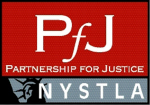 Ever since the advent of genetic counseling almost half a century ago, the American legal system has struggled to develop a reasoned approach for handling tort claims based on the notion of a wrongful birth – that is a claim for damages based on the birth of child with serious genetic defects. In a sense, it’s a tort action similar to any other negligence or professional malpractice claim, which arises if a professional counselor and/or physician, in providing pre-natal screening, fails to meet the appropriate standard of care by not warning parents about a foreseeable or detectable genetic defect. But even though such a claim is based on traditional concepts of negligence, courts have been troubled by the ethical dimensions of awarding damages as the result of the birth of a child.
Ever since the advent of genetic counseling almost half a century ago, the American legal system has struggled to develop a reasoned approach for handling tort claims based on the notion of a wrongful birth – that is a claim for damages based on the birth of child with serious genetic defects. In a sense, it’s a tort action similar to any other negligence or professional malpractice claim, which arises if a professional counselor and/or physician, in providing pre-natal screening, fails to meet the appropriate standard of care by not warning parents about a foreseeable or detectable genetic defect. But even though such a claim is based on traditional concepts of negligence, courts have been troubled by the ethical dimensions of awarding damages as the result of the birth of a child.
In fact, a wrongful birth claim cannot be brought in a number of states because it has been statutorily banned – not surprisingly this tends to be the approach in Red State America, where right-to-life views predominate.
But even in more liberally minded jurisdictions, courts have distinguished and imposed limits on wrongful birth claims in contrast to the legal treatment accorded to other types of medical malpractice actions. The approach of the New York courts is a good example. Five years after Roe v. Wade established a woman’s right to choose, the New York State Court of Appeals ruled in favor of the plaintiff in Becker v. Schwartz awarding a woman who gave birth to a baby with Downs Syndrome financial damages because her doctors had failed to advise her that, based on her age, which was above 35, her child was at greater risk. But the court limited its award to financial damages to the mother based on the cost of caring for the child and refused to grant any award of emotional damages, reasoning that the family “may experience a love [for their child] that even an abnormality cannot fully dampen.”
At present, courts in about half the states recognize claims based on wrongful birth at least for financial damages. And not surprisingly, as pre-natal genetic testing becomes a more common practice, claims based on wrongful birth are being brought with increasing frequency.
Our own interest in the issue of wrongful birth litigation stems from our work as structured settlement consultants. In our corner of the legal universe, we see wrongful birth plaintiffs face yet one more hurdle that prevents them from receiving full and fair recovery even with respect to an award of financial damages. That’s because even in states that recognize a cause of action for wrongful birth, there is no clarity as to whether wrongful birth plaintiffs are able to receive their financial damages in the form of a Tax Free Qualified Structured Settlement.
As we’ve discussed on the blog before, a structured settlement is ideally suited to the needs of personal injury victims who face long-term medical care needs, by providing an optimal, tax advantaged vehicle to generate a stable stream of income for life. A child born with a serious birth defect is exactly the sort of person who stands to benefit most from a structured settlement approach.
Yet for some reason, not entirely clear to us, insurance companies are presently unsure whether to establish structured settlements that cover wrongful birth lifetime care needs. We think this is wrong and needs to change. It is based on an overly narrow reading of Internal Revenue Code section 104(a)(2), which is the statutory provision that provides tax-advantage to structured settlements to those who suffered with a physical injury or illness. There is no legal, policy or ethical reason, why families facing the burden of lifetime care for children born with serious birth defects should not stand to benefit from the advantages of Internal Revenue Code section 104(a)(2) the same as other damage award recipients. In fact, there have been other IRS revenue rulings that have carved out exceptions permitting future medical expenses to be non-taxable on the reasoning that the plaintiffs cannot deduct those future costs because the monies came from an insurance company (just as individuals cannot deduct those dollars that they receive from health insurance companies pay for medical treatment).
We are involved in case right now where a mother failed to receive advance notice about a Fragile X gene and as a result of that failure must now care for severely disabled twins for the rest of their life. We don’t see why these victims — these parents and children — are not afforded the right to use a Qualified Tax Free Annuity for the future medical care.. Tax-free settlements are far more cost effective because the same amount of dollars paid via a structured settlement can go that much further in providing needed care. Moreover, annuities are an important tool for helping these families cover these ongoing costs. And there’s further financial leverage inasmuch as structured settlements are decided based on rated ages, and life expectancies, which may also work to the advantage of children with serious birth defects.
The issue requires clarity. We at ESS Settlement Services are committed to do whatever we can. To start with, we will contact each Life company on behalf of these victims and fight for their rights because we believe it’s time that wrongful birth claimants are entitled to the same benefits under the law as other damage award recipients.


